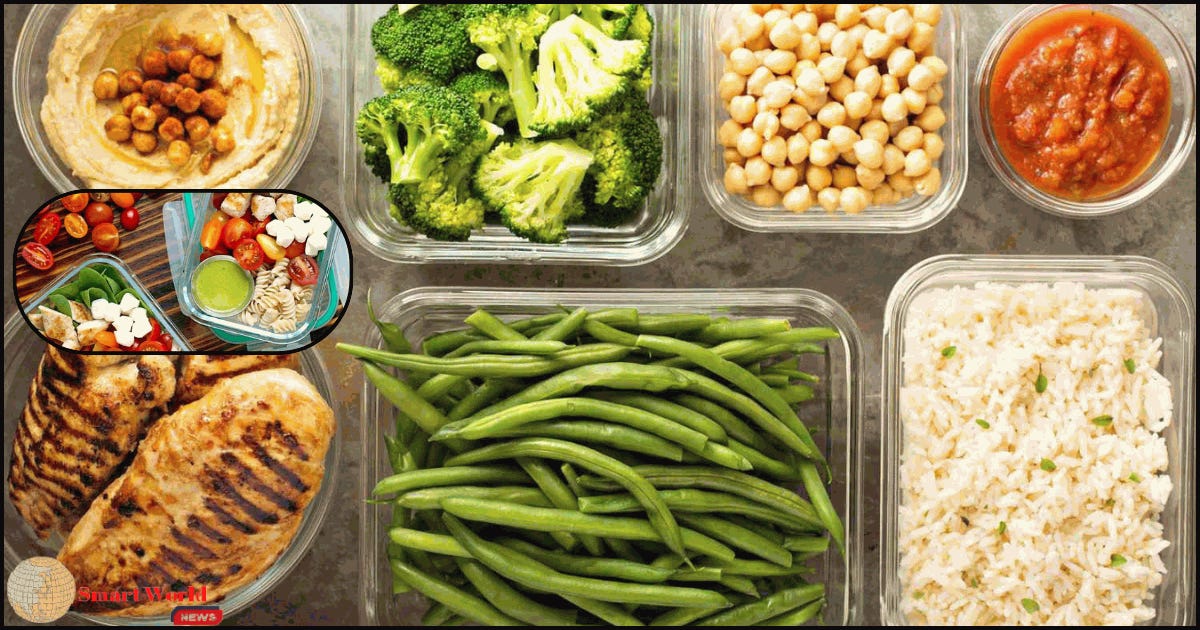Embarking on a journey to adopt nutrient-rich meal plans is a proactive step towards achieving optimal health and vitality.
A diet rich in essential nutrients not only supports physical well-being but also contributes to overall mental and emotional balance.
In this article, we will explore the principles and benefits of nutrient-rich meal planning, helping you design meals that nourish your body comprehensively.
Foundation of Nutrient-Rich Foods
The cornerstone of nutrient-rich meal plans is the inclusion of whole, unprocessed foods. Base your meals on a variety of fruits, vegetables, whole grains, lean proteins, and healthy fats. These foods provide a broad spectrum of essential vitamins, minerals, antioxidants, and macronutrients, ensuring your body receives a well-rounded nutritional profile.
Balanced Macronutrient Ratios
Achieving a balance of macronutrients—proteins, carbohydrates, and fats—is crucial for comprehensive nutrition. Tailor your meal plans to include a mix of these macronutrients to support energy production, muscle function, and overall metabolic health. Choose lean protein sources, complex carbohydrates, and healthy fats for a well-rounded and satisfying meal.
Colorful and Diverse Plate
A nutrient-rich meal plan embraces the diversity of colorful foods. Aim for a variety of colors on your plate, as different hues signify specific nutrients and health benefits. Include a mix of vegetables, fruits, and other plant-based foods to maximize the nutritional content of your meals.
Prioritize Whole Grains
Incorporating whole grains into your meal plans adds essential fiber, vitamins, and minerals to your diet. Choose options like quinoa, brown rice, and oats to provide sustained energy, support digestion, and contribute to overall heart health.
Lean Proteins for Muscle Health
Protein is a vital component of nutrient-rich meal plans, supporting muscle repair, immune function, and overall satiety. Include lean protein sources such as poultry, fish, tofu, legumes, and dairy to ensure you meet your protein requirements while maintaining a balanced and nutritious diet.
Healthy Fats for Brain and Heart Health
Incorporate sources of healthy fats to promote brain health and support cardiovascular well-being. Avocados, nuts, seeds, and olive oil are excellent choices that add flavor and nutritional value to your meals. Be mindful of portion sizes to maintain a balanced intake of fats.
Mindful Eating Practices
Mindful eating complements nutrient-rich meal plans by fostering a deeper connection with your food. Practice mindful eating by savoring each bite, paying attention to hunger and fullness cues, and minimizing distractions during meals. This approach enhances your overall appreciation for the nourishment your meals provide.
Benefits of Nutrient-Rich Meal Plans
Enhanced Energy Levels
Nutrient-rich meal plans provide your body with a steady supply of energy, preventing energy spikes and crashes. This sustained energy supports daily activities and reduces the reliance on quick fixes like sugary snacks or caffeinated beverages.
Optimal Nutrient Intake
By prioritizing nutrient-dense foods, you ensure your body receives the essential vitamins, minerals, and antioxidants it needs for optimal functioning. Nutrient-rich meal plans contribute to overall health, supporting immune function, and reducing the risk of nutritional deficiencies.
Sustainable Weight Management
Balanced macronutrient ratios and mindful eating practices in nutrient-rich meal plans contribute to sustainable weight management. This approach promotes a healthy relationship with food, preventing overeating and supporting long-term wellness.
Conclusion
Crafting nutrient-rich meal plans is a proactive and empowering way to prioritize your health. By incorporating a foundation of whole, unprocessed foods, balancing macronutrients, embracing dietary diversity, and practicing mindful eating, you create meals that nourish your body comprehensively.
Consider this guide as a roadmap for designing nutrient-rich meal plans that contribute to your overall well-being, providing sustained energy, optimal nutrition, and a foundation for a vibrant and healthy life.

Leave feedback about this